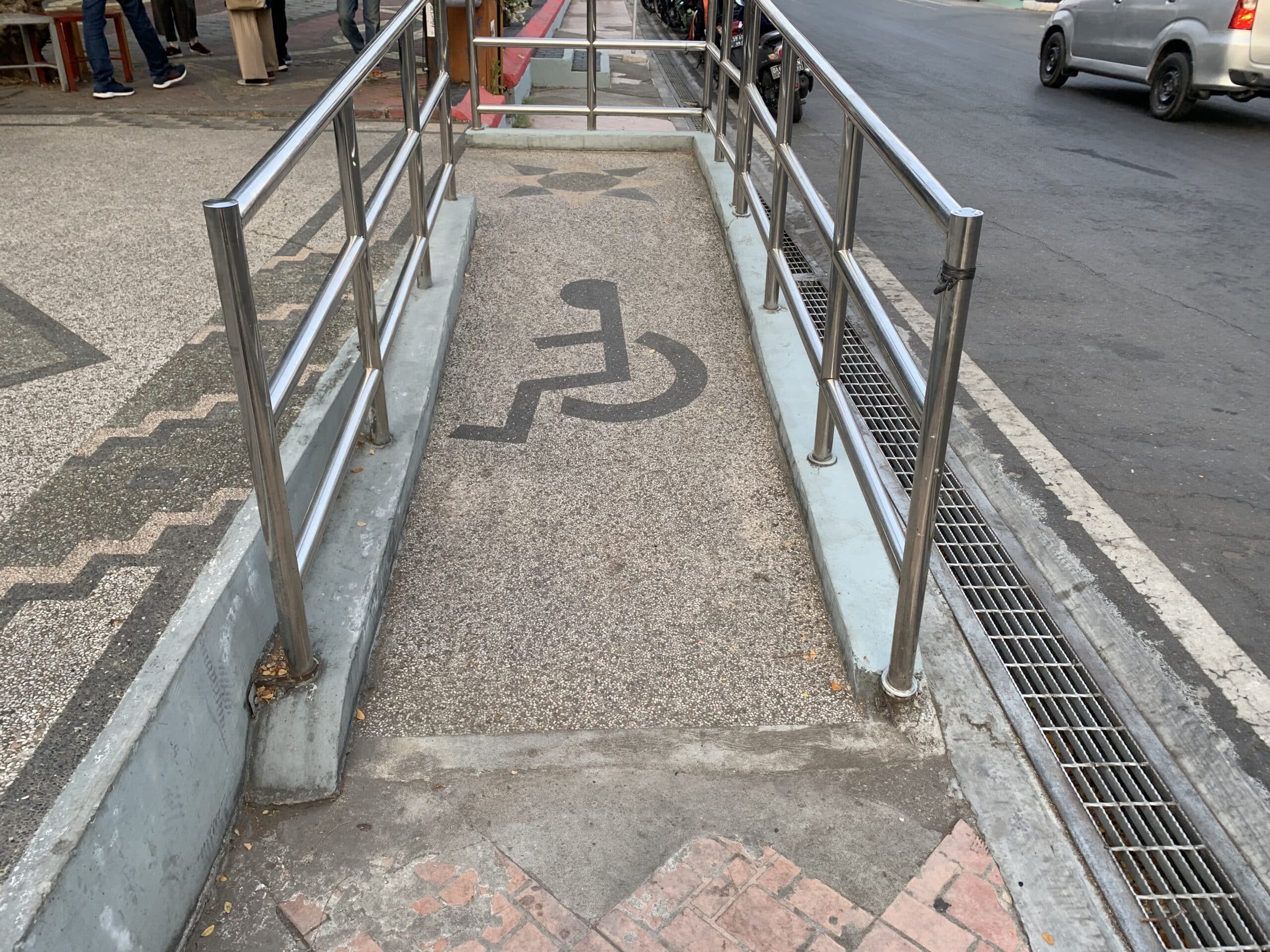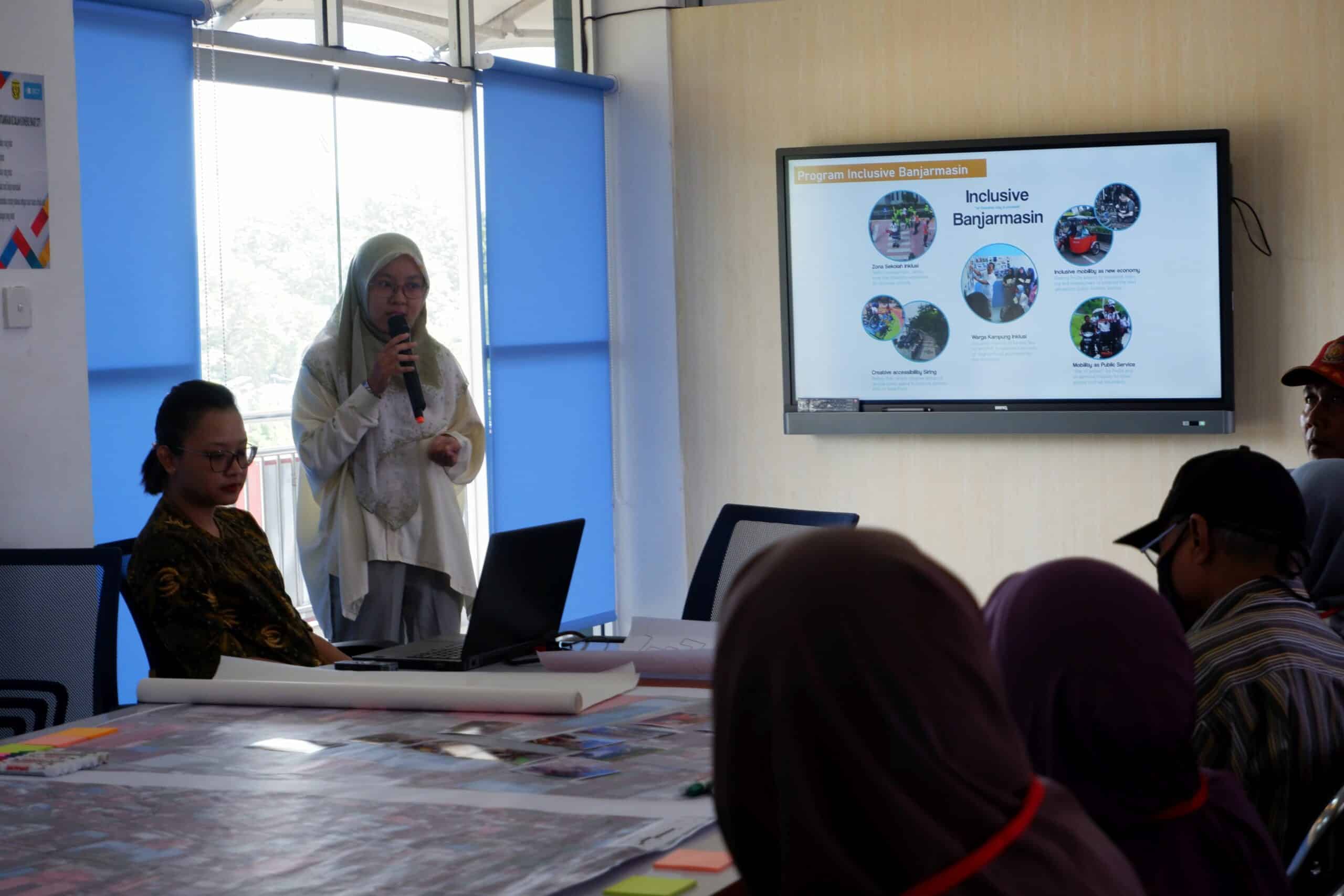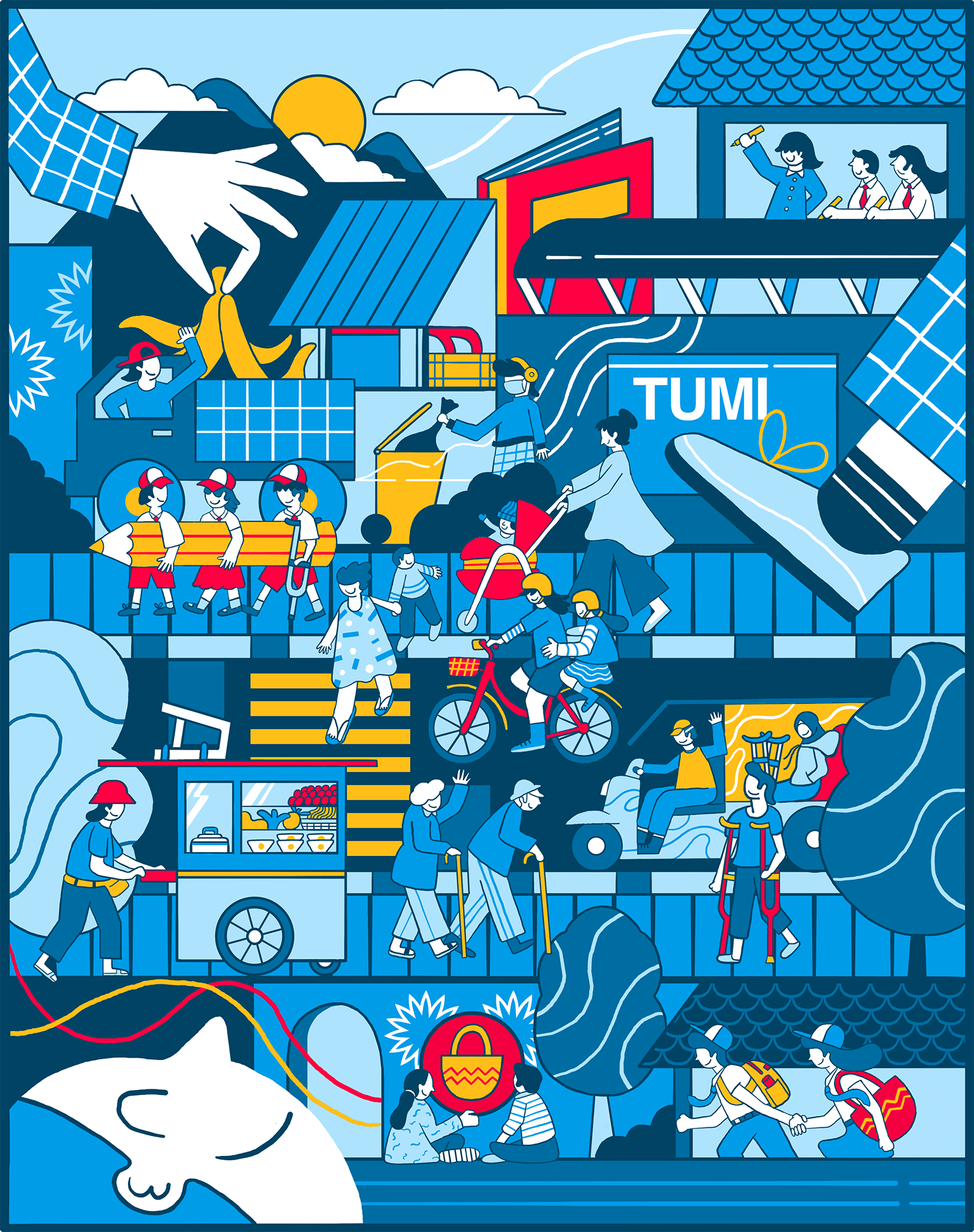Inclusive Streets, Inclusive Communities
The TUMI Inclusive Banjarmasin initiative in Indonesia applies the citizen-driven and participatory approach which creates an enabling environment for vulnerable groups and citizens to be engaged in the decision-making process, including planning, designing, advocacy, implementation, and monitoring.
This project has proven that the participatory approach which empowering the persons with disabilities in the process has become a key in building a more inclusive city.









